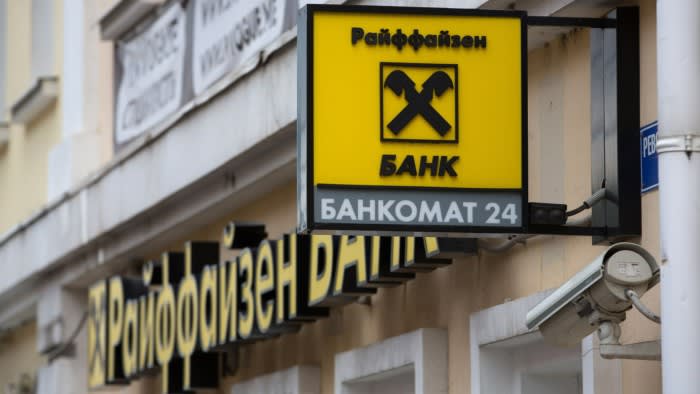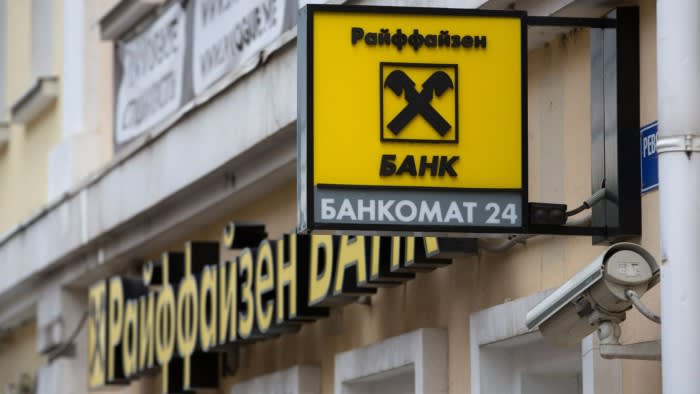
Unlock the Editor’s Digest for free
Roula Khalaf, Editor of the FT, selects her favourite stories in this weekly newsletter.
Raiffeisen Bank International on Wednesday abandoned a planned sale of risky bank debt after an “adverse market reaction” to a report that the US was putting pressure on the Austrian group over a deal with Russian oligarch Oleg Deripaska.
The Vienna bank had been working on a sale of €650mn “additional tier 1” bonds, a class of debt designed to take losses when institutions run into trouble, and had received more than €1.6bn of demand from investors.
But hours before the bonds were due to be priced, Raiffeisen pulled the offering, citing “adverse market reaction to the latest headlines”.
The company made reference to a Reuters article that said Washington was pressuring the bank to drop a complex and controversial €1.5bn asset swap with Deripaska. The deal would allow the bank to repatriate earnings from Russia.
The US has raised fears over the Austrian bank’s dealings with the Russian businessman, who was sanctioned following Russia’s invasion of Ukraine.
RBI was offering investors a 8.5 per cent yield on the deal, which was due to mature in December 2029 and earmarked to repay an existing AT1 bond.
The robust demand for Raiffeisen’s AT1 bonds underscored the strength of the AT1 market almost a year after investors’ faith had been shaken by the collapse of Swiss bank Credit Suisse. Regulators allowed $17bn of Credit Suisse bonds to be wiped out while shareholders received a small payout. Generally AT1 bonds are believed to rank ahead of equity on the balance sheet.
Prices on RBI’s existing AT1 bonds slipped slightly on Wednesday, while shares in the bank closed 8.7 per cent lower.
Raiffeisen is the biggest European lender remaining in Russia and has earned vast profits from its operations since the war in Ukraine began in 2022. Last year almost half of the bank’s €2.1bn profits came from its Russian division, up from around a third before the war. But the Kremlin’s imposition of capital controls means RBI has been unable to repatriate its earnings.
Under the arrangement with Deripaska, Raiffeisen’s Russian subsidiary will pay cash to Deripaska in exchange for his 28 per cent shareholding in Austria’s Strabag, one of Europe’s largest construction companies.
Reuters reported that US authorities were on the verge of breaking up the complex deal. The transaction will require the subsidiary getting special approval from the Kremlin.
RBI, which described the Reuters story as “rumours”, said it had “diligently verified the compliance of the Strabag transaction with all applicable sanctions”.
It added that it would not go ahead with any deal that breached sanctions or put RBI at risk of breaching sanctions.
Raiffeisen, which has previously explored complicated asset swaps with Russian entities under sanctions, has come under mounting pressure to scale back its Russian operations but has resisted, insisting that doing so would harm shareholders.
The Financial Times reported in March last year that RBI had begun work on a possible €400mn deal with Sberbank’s frozen European holdings, until the state-owned bank sold the assets to another party.
Read More: World News | Entertainment News | Celeb News
FT








